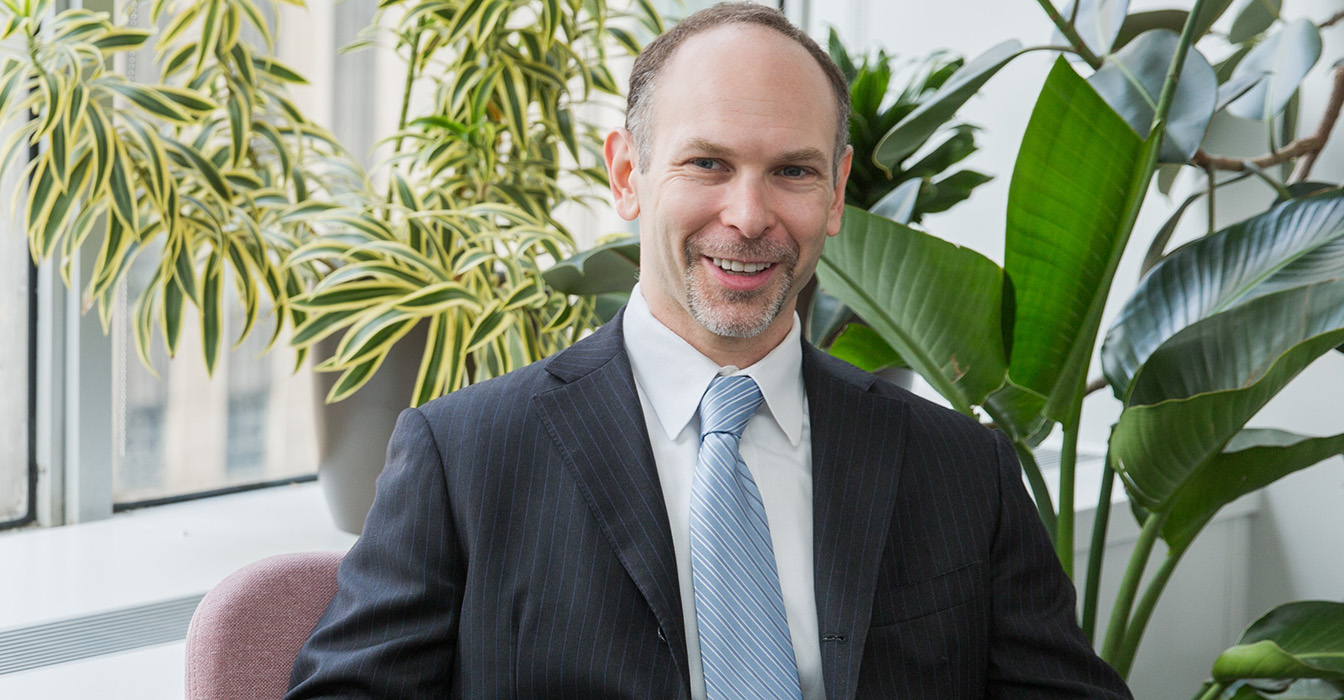(Excerpts from this Q&A were originally published in Lawdragon)
Jordan Goldstein occupies a unique niche at the intersection of finance and law. After securing an MBA from Harvard Business School and a J.D. from Harvard Law, he went on to serve as a federal prosecutor and hold several high-ranking positions at the Department of Justice. Goldstein later spent time as a deal lawyer before settling into his current litigation practice, which is an even balance of plaintiff and defense work with a particular focus on investor claims. Goldstein, one of the original founders of the breakout law firm Selendy & Gay, also serves as the firm’s General Counsel.
Lawdragon: Will you describe for our readers the mix of work you do within your practice?
Jordan Goldstein: My practice is fairly evenly split between plaintiff and defense-side work in complex litigations, often involving securities and claims of fraud, breach of contract, and breach of fiduciary duty. For many years, I litigated cases on behalf of the Federal Housing Finance Agency, which is the conservator for Freddie Mac and Fannie Mae, against most of the major investment banks, including Goldman Sachs, Bank of America, and Citigroup, arising from their sales of residential mortgage-backed securities. As a result of these litigations, my team and I recovered over $20 billion for U.S. taxpayers. More recently, I have defended claims of fraud against a subordinated lender and one of its principals brought by a consortium of secured lenders seeking over $360 million in alleged damages from our client. I have also recently litigated on behalf of borrowers asserting lender liability claims.
I also have an active Delaware practice. Recently, I represented an investor that objected to an allegedly conflicted merger orchestrated by a controlling stockholder. We brought a statutory books and records claim seeking evidence of breaches of fiduciary duty. In order to obtain this evidence, we first had to establish a credible basis to suspect wrongdoing by the company and its controlling stockholder. Immediately after we obtained a favorable ruling from the court, the controlling stockholder called off the disputed merger, which was a successful outcome for our client. That’s one example of the sort of work we routinely handle in Delaware.
LD: How did you first become interested in financial litigation?
JG: My background is unusual in that I earned an MBA at Harvard Business School at the same time I completed my law degree there, and although I did initially consider investment banking, I was ultimately more drawn to law and solving legal problems. For that reason, I started my career as a transactional lawyer, focusing on bank mergers, but over time gravitated to high stakes litigation. That said, many of the issues I litigate still arise from corporate transactions, and I find having both a business and a corporate law background useful in dealing with these types of cases.
LD: Will you walk us through your career path after law school?
JG: After obtaining joint law and business degrees, and an initial focus on transactional law, I clerked at the U.S. Court of Appeals for the Ninth Circuit. I then had the good fortune to work at the U.S. Department of Justice in Washington, D.C., first at the Office of Legal Counsel, and then at the National Security Division, where I focused on constitutional rights, the law of war, and executive power. However, I still missed working on complex financial transactions, and when I returned to New York, I had the opportunity to join a team at one of the world’s largest trial firms, which was then ramping up to litigate the aftermath of the 2008 financial crisis.
In early 2018, a group of us spun-off to start our own law firm, with a focus on bringing the highest quality talent to legal disputes. Selendy & Gay has grown very quickly over the past two years, and we are now at nearly 50 lawyers, but we still very much function and feel like a close-knit partnership, meeting every week to update one another on our cases and leverage each other’s expertise.
LD: How has your own practice changed since the early part of your career?
JG: Perhaps because of my prosecutorial background, my private practice initially focused on the plaintiff-side, but has broadened considerably over the years to a relatively even mix between plaintiff and defense work, which in many ways mirrors the overall balance at Selendy & Gay. I believe that operating on both sides of the “v” helps us counsel our clients, as we can better anticipate the sort of arguments and tactics we’re likely to face in any litigation.
LD: Will you talk a bit about your contributions on the management side at Selendy & Gay?
JG: In addition to being a partner at Selendy & Gay, I am also the firm’s General Counsel, and therefore am responsible for managing the firm’s overall legal risk. Although many law firms do not have general counsels, we believe it is essential to have someone with accountability for resolving any issue that can create risk to our firm. Many of the issues I deal with as General Counsel afford me the useful perspective of seeing matters from both the lawyer and client side. I think a growing number of law firms are seeing the importance of formalizing the general counsel function.
Read the full interview in Lawdragon.


